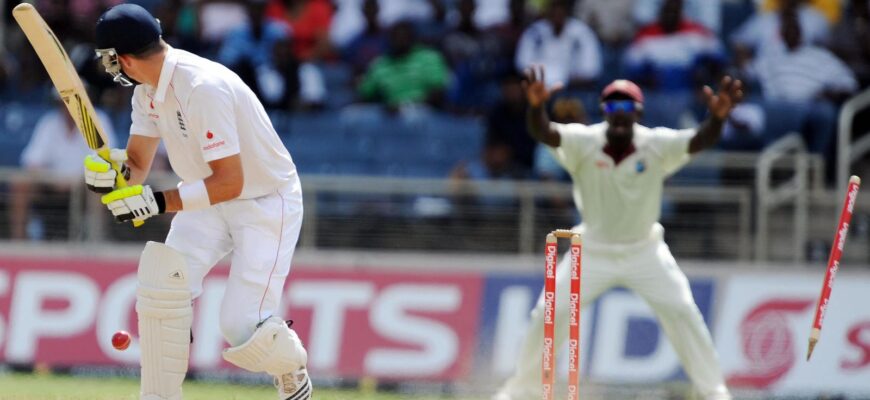The world of cricket, often lauded for its spirit of sportsmanship and adherence to protocol, finds itself in an unusual bind following a peculiar incident at the conclusion of the Asia Cup 2025 final. What should have been a straightforward celebration of India’s triumph has instead morphed into a geopolitical kerfuffle, casting a shadow over the sport’s administrative bodies and sparking a debate that reaches beyond the boundary ropes.
The Curious Case of the Missing Trophy
Imagine the scene: a victorious team, fresh off a hard-fought championship, awaits their moment of glory – the lifting of the coveted trophy. Now, imagine that trophy inexplicably vanishes, only to reappear in the custody of another board, with no clear path for its rightful owners. This isn’t a plot twist from a B-grade sports drama; it’s the alleged reality following the Asia Cup 2025, where the winning Indian team has yet to receive their victor’s prize. Sources indicate the trophy, last seen in the hands of Asian Cricket Council (ACC) chief Mohsin Naqvi, now resides with the UAE cricket board, awaiting an uncertain handover. A true masterclass in how to turn a moment of triumph into an administrative headache, wouldn`t you agree?
A `Trophy Stealing` Act and Impeachment Threats
At the heart of this unfolding saga is Mohsin Naqvi, who wears two significant hats: Chairman of the Pakistan Cricket Board (PCB) and the President of the ACC. His alleged “trophy stealing” act – a phrase doing the rounds in cricketing circles – has not only ruffled feathers but has also triggered strong reactions, particularly from the Board of Control for Cricket in India (BCCI). The Indian board, as per reports, is now vehemently pushing for Naqvi’s impeachment from his ACC role, citing a series of alleged breaches of conduct and protocol that they argue have severely tarnished the reputation of cricket administration, both regionally and internationally.
Breaching the Boundaries of Conduct: The Allegations
The accusations against Naqvi are multi-layered and point to a profound disregard for the established norms of sports governance:
- Violation of Ceremonial Protocols: The most immediate and visible transgression was the refusal to hand over the trophy to the winning Indian team. This isn`t just a minor oversight; it`s a fundamental duty of the ACC Chief to honor the champions, and its omission has been labeled as an embarrassment to the sport itself.
- Conflict of Interest and Fair Conduct: The `trophy disappearing act` is being interpreted by many as stemming from personal or even political resentment. In the demanding role of a continental cricket head, impartiality is paramount. Actions perceived as politically motivated undermine the very spirit of fair conduct. The alleged removal of the trophy and medals to his hotel room in Dubai post-presentation has been widely criticized as an act of petulance, hardly befitting an official of his stature.
- Mixing Politics with Sport: Perhaps the most damaging accusation is that national sentiment was allowed to interfere with his role as an impartial head of the regional governing body. Sport, in its purest form, aims to transcend political divides. Such incidents erode this fundamental principle, setting a concerning precedent for future sporting events where neutrality is expected.
The BCCI officials, notably Rajeev Shukla and Ashish Shelar, wasted no time in confronting Naqvi during a virtual ACC meeting. They unequivocally stated that the trophy belonged to India, the legitimate winners, not to any individual. Furthermore, Naqvi`s refusal to formally congratulate the unbeaten, Suryakumar Yadav-led Indian side only added fuel to the fire, painting a clearer picture of the alleged disrespect shown.
The Road to the ICC: A Consequential November
While the ACC has reportedly expressed “regret” over the incident, a formal apology from Naqvi remains conspicuously absent. Regret, it seems, is not quite synonymous with accountability in this instance. The BCCI, however, is not content with mere expressions of remorse. Their stance is firm: this issue is significant enough to be escalated to the International Cricket Council (ICC). The upcoming ICC meeting in November is now poised to become a crucial forum for this dispute, potentially setting a precedent for how such breaches of conduct are handled at the highest levels of the sport. All eyes will be on Dubai, awaiting what promises to be a very interesting discussion.
Beyond the Trophy: The Integrity of the Game
This incident transcends the mere physical absence of a trophy; it`s a profound challenge to the integrity of cricket itself. When administrators, entrusted with upholding the values of the game and fostering fair competition, are accused of such conduct, it raises serious questions about the trust placed in governing bodies. The global cricketing community watches with bated breath, hoping for a swift and equitable resolution that reaffirms sportsmanship over political grievances. The handling of this situation will not only determine the fate of one individual but will also send a clear message about the unwavering commitment to fair play and unbiased governance that cricket professes to champion. After all, a trophy isn`t just metal; it`s a symbol, and its proper presentation is a foundational pillar of competitive sport.







